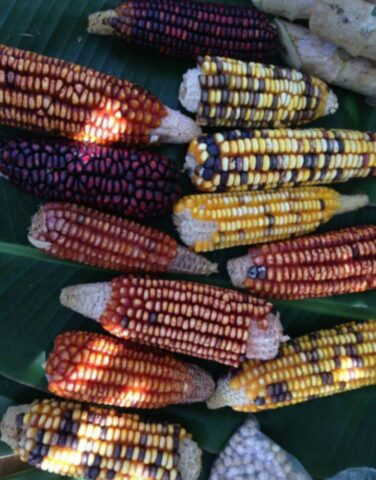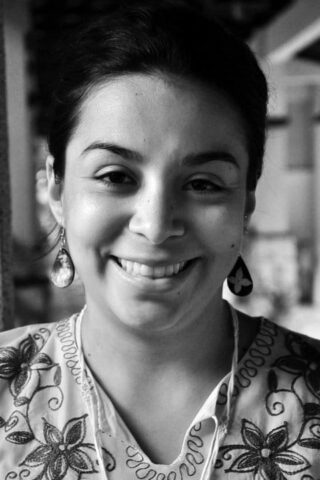The issue of seeds is important for communities in Costa Rica, mainly for peasants and indigenous people who have been vigilant in this process. Today, representatives of environmental organizations emphasize the bill, which is of course supported and discussed by the legislators of the Republic. This project is considered ambiguous by Mariana Porras, leader of the Biodiversity Coordination Network.
It is worth noting that in October of last year 2021, the movement to fight for seeds had called for a sit-in and exchange of seeds, both actions took place against the draft law for the privatization of seeds in Costa Rica.
This is the project called “Law for the modernization of the national seed office” and has file number 21,087, according to members of organizations that were present at the sit-in, it is a new attempt by the agro-corporate sector and its partners of the State that intends to criminalize the trade in native, local and traditional seeds.
Given the situation with the seeds, from The Costa Rica News, we decided to speak with Mariana PorrasRozas, representative of the Biodiversity Coordination Network, just as we mentioned before, she considers the bill to be ambiguous and here she explains in detail the seed process in the country and the importance they have for the communities.
It is noteworthy that in recent days from the Biodiversity Network, a group of women through a discussion, explained details of the topic. The Biodiversity Coordination Network is a non-profit organization that has worked with environmental struggles for more than 20 years, monitoring the implementation of public policies and legislation regarding biodiversity issues, the issue of seeds has been important to them.
How important are seeds in Costa Rica?
Mariana Porras said that the seed is the first link in any agri-food chain, that is, “without the seed we could not produce all the food we consume today, that is why its possession, production and trade is so important. All seeds agricultural crops that constitute the main source of food for humanity, have been a creation of indigenous peoples, peasant communities and the result of experimentation, study, research, creativity and dialogue with nature”.
From the perspective of Porras, based on the Food and Agriculture Organization of the United Nations or better food as FAO, approximately 250,000 species of higher plants have been described and identified, of which 30,000 are edible species, but those 30 a thousand species are produced mainly worldwide, 30 species of plants are planted that are the main crops that feed the world, we are talking, for example, of five cereals, rice, wheat, corn, millet and sorghum that provide 60% of the caloric intake of the world population, “then from 30,000 species to just that we feed mainly on 30 species of plants, because then we recognize the decrease in food diversity that has occurred fundamentally in the last 60 years, and therefore What has caused this disappearance?According to the FAO, in its first report on the state of the world’s plant genetic resources since 1996, it clearly expresses that the main contemporary cause of loss of genetic diversity has been the spread of modern agriculture.
Details on the seed situation in the country?
For many years the seeds have circulated without any ties, exchanging and diversifying in the hands of the people and since the green revolution, it is when the companies looked for ways to increase control over the seed and also the profit and that is why they have created different mechanisms to be able to certify it.
“In order to market it, only certain regulations, certain legislations are followed and that is why we at the Network are currently concerned about the bill that is being discussed in the Legislative Assembly because it gives greater control over the seed to the different seed companies”.
For peasant, indigenous and environmental organizations, it is very important that the seeds continue to maintain their character of a common good that there are no obstacles to their exchange or commercialization. From our perspective, seeds are not just another agricultural input, they are essential for the survival and development of the peoples and communities that have made it possible for the different seeds found in the country to continue exchanging and developing.
In addition, seeds are the foundation of products of cultures that incorporate values and affections, visions, ways of life and even for some cultures it is something that is also linked to sacred issues, therefore, this type of law worries us, due to the fact that they try to avoid the practices that have been developed for thousands of years, there are very ambiguous articles, they say that they are going to defend the native seed, but at the same time if they are going to be commercialized they have to go through those registration processes.
About the types of seeds
Mariana Porras mentioned the types of seeds in the country: Creole, native and local. For us, Creole seeds, for example, are those that originate from other latitudes and that arrived in Costa Rica by various means, but that peasant and indigenous work contributes to their adaptation and to be mixed in some cases with local or native seeds, they can be sow freely in the country and there is no problem to produce and native or local seeds, also called traditional, originate from the country, sometimes endemic and have been worked, improved and adapted to various ecosystems and sometimes also through research and practices related to native seeds through human intervention or by natural means.
The lawsuit against the bill 21,087
Currently, there are several things that concern us, first of all that it was built without adequate consultation with peasant and indigenous organizations. We do not understand why, despite the fact that, as I said before, the seed is very important for these communities, because it is the main means with which the food we consume can be produced.
For us it is totally relevant that they did not make the consultation, even in compliance with the country’s obligations towards international treaties, it is signed as the FAO Treaty on Phytogenetic Resources for Food and Agriculture, which says in its article number 9, that The right to participate in decision-making at the national level on matters related to the conservation and sustainable use of plant genetic resources for food and agriculture is important, as well as other articles of that same declaration, which speaks about the rights of peasants These are the main actions that we have been denouncing, as well as the bill, which for us is ambiguous.

Porras emphasized that there are various things that are not clear in the bill and if a person wants to market a seed and has not gone through that control, then they will go through certain infraction processes and others, it is real that there are communities that exchange seeds, but they also trade, they also sell seeds.

Important data
In Costa Rica, according to the Organization for Economic Cooperation and Development (OECD), almost 90% of the seeds used are not subject to certification mechanisms, that is, the vast majority of seeds are local varieties, native and creole.
Finally, members of the country’s National Seed Office said that the business of importing seeds or seeds reports transactions of up to USD$36 million per year, making it a potential business of 400 million dollars per year for transnationals such as Bayer, Corteva, ChemChina and Limagrain that today control more than 50 percent of the world’s seeds.

